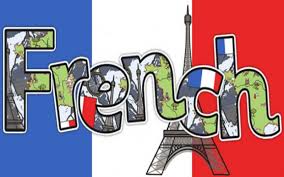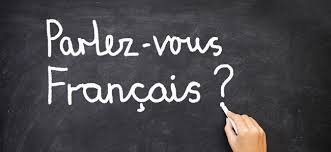
Curriculum Intent:
At Hoole St Michael we believe that learning a modern foreign language is an important part of understanding our place in the wider world. As children learn another language, they also deepen their knowledge of the culture surrounding that language and understand more about the beliefs and traditions of others. Learning a modern foreign language also encourages children to explore where words in our own language come from. As children progress through Key Stage 2, they learn that our country has a long history of being invaded and settled, including by our French king William of Normandy. This has influenced how our own language has been formed.
The teaching of a language should allow children to express themselves using the spoken and written word as well as encouraging them to listen to others speaking the language. Teaching should also give children opportunities to show their comprehension and enjoy great works of literature or traditional tales in the language. We teach a modern foreign language with the aim of encouraging children to learn further languages and to equip them with the skills and knowledge that they need to work internationally.
The National Curriculum for languages aims to ensure that all pupils:
- understand and respond to spoken and written language from a variety of authentic sources
- speak with increasing confidence, fluency and spontaneity, finding ways of communicating what they want to say, including through discussion and asking questions, and continually improving the accuracy of their pronunciation and intonation
- can write at varying length, for different purposes and audiences, using the variety of grammatical structures that they have learnt
- discover and develop an appreciation of a range of writing in the language studied.

French at Hoole St Michael:
Children have weekly programs of French based around the Rigolo program. This is progressive and builds on the children’s knowledge from lower to upper Key Stage 2.
It is intended that when children leave our school they have a love of language learning and will continue to explore other great languages of our world. Children recognise that they have learnt a valuable skill for life and one that can be useful to them in their world of work.
Pupils are taught to:
- listen attentively to spoken language and show understanding by joining in and responding
- explore the patterns and sounds of language through songs and rhymes and link the spelling, sound and meaning of words
- engage in conversations; ask and answer questions; express opinions and respond to those of others; seek clarification and help
- speak in sentences, using familiar vocabulary, phrases and basic language structures § develop accurate pronunciation and intonation so that others understand when they are reading aloud or using familiar words and phrases
- present ideas and information orally to a range of audiences
- read carefully and show understanding of words, phrases and simple writing
- appreciate stories, songs, poems and rhymes in the language
- broaden their vocabulary and develop their ability to understand new words that are introduced into familiar written material, including through using a dictionary
- write phrases from memory, and adapt these to create new sentences, to express ideas clear
- describe people, places, things and actions orally and in writing
- understand basic grammar appropriate to the language being studied, including (where relevant): feminine, masculine and neuter forms and the conjugation of high-frequency verbs; key features and patterns of the language; how to apply these, for instance, to build sentences; and how these differ from or are similar to English.

French in Atlantis Class Year 1 and 2:
Although it is only statutory to teach French in KS2, due to our cyclical curriculum we teach basic greeting in KS1. This gives pupils the tools to access the curriculum in KS2 with confidence.
French in Enterprise Class Year 3 and 4:
Children recap on a range of basics of greetings. We then move on to areas such as family, my body, daily routines and life at school. The children will then explore wider concepts such as hobbies, celebrations, holidays and animals. These topics are to be taught on a two-year rolling program to reflect the mixed age teaching in our school. Children will be taught a bank of vocabulary and learn how to form basic sentences in the present tense forming the key verbs of avoir and etre accurately.
French in Endeavour Class Year 5 and 6:
As children move to Year 5 and 6 they will have a good knowledge of the basic vocabulary needed. They will revisit the ideas of the previous two years but this time progressing to more complicated sentence structures such as forming questions or switching between negative and positive – I have or I do not have. Children will also be able to add more description to their sentences.
Topics will again be covered on a two-year rolling program and cover topics such as: home, school, weekends, about town, likes and dislikes on holiday.

Teaching for lifelong language learning:
Here at Hoole St Michael we are aiming for our children to have a love learning a modern foreign language and in turn want to continue their journey into secondary school and beyond. We want our children to grow in confidence and resilience when meeting new languages of the world and see links to their learning in French. Using recommended assessment techniques at the end of every unit and every term, we are able to tailor our teaching to the needs of the children. Language learning needs to be purposeful and practised. By developing meaningful links with our TARDIS Cluster schools and local high schools, we allow the children to practise their skills and grow in confidence as a linguist.
The subject leader for MFL is Miss Topping.







